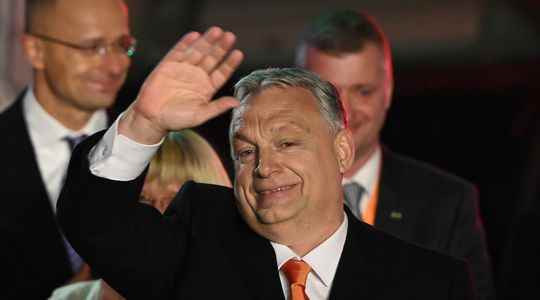In recent weeks, Viktor Orban has blocked the European Union’s adoption of the minimum 15% tax on multinational profits, prevented Patriarch Kirill – head of the Russian Orthodox Church and strong supporter of Vladimir Putin – is sanctioned by Brussels, and obtained, after several weeks of blackmail, that the embargo on Russian oil does not apply to his country. On April 3, 2022, the evening of a triumphant re-election and barely two days after the first images of the war crimes committed in Boutcha by the Russian army were unveiled, he also did not hesitate to designate Volodymyr Zelensky as one of his enemies.
In this context, many are those who wonder what happened to the master of the “peacock dance”, as Orban himself defined this art of negotiation combining provocations in front of the media and flattery in the secrecy of the European Council in order to obtain the compromises which were favorable to it. For a few months, the Hungarian leader seems to have forgotten this discipline which allowed him to snatch decisions presented as victories in front of his public opinion while taking care not to cross the red line making him a pariah on the international scene.
Within the EU, its isolation is indeed growing day by day. From 2021, under the threat of humiliating exclusion, his Fidesz movement was forced to leave the European People’s Party. The German conservatives in the CDU, who control the EPP, then sent the signal that they refused to be Orban’s protectors any longer. The Hungarian leader then bet everything on his alliance with the ultra-conservative Polish regime of the Law and Justice party. Accused of violating the rule of law and sinking into ultranationalist logic, Warsaw and Budapest supported each other. But, while the Polish nation has shown extraordinary solidarity with the Ukrainian people, Orban’s complacency, even complicity with Putin, has made him toxic to Jaroslaw Kaczynski and his affiliates. Even the Visegrad group, so influential during the 2015 migration crisis, now seems like an empty shell.
The Trojan horse of Moscow and Beijing in Europe
However, it would be a serious mistake to underestimate the resilience of the man who is now the dean of the European Council. In power since 2010, re-elected in a resounding fashion, chaining four consecutive mandates, Orban benefits – unlike many of his European counterparts – from very strong domestic support. Admittedly, his influence on the Hungarian political scene results in part from his stranglehold on the media, his muzzling of justice, his fallacious exploitation of history and the system of nepotism that he established. The fact remains that many Hungarians judge his economic results very positively, share his ultra-conservative orientations and are grateful to him for having given a voice and influence to their country on the European scene.
Beyond the Hungarian borders, there are also many Europeans who consider that Orban’s anti-migrant policy during the Syrian crisis was the right one. By presenting himself, with skill, as a herald of traditional values, Christian identity and the anti-woke struggle, the Hungarian leader has also been able to attract many sympathies. And many European leaders, if they cannot assume it publicly, sometimes find it convenient to hide behind the outbursts and provocations of the Hungarian leader to advance their own interests.
Finally, if he is today the Trojan horse of Moscow and Beijing in Europe, Orban could have an even more powerful ally from 2024. At the recent conference of American conservatives held in Budapest, the master of Hungary – seen as a source of inspiration by part of the republicans – treated his guests with the greatest care. And should Trump not be able to run again, Orban has made sure to forge strong ties with Florida Governor Ron DeSantis, whom he believes his ultraconservative agenda, combined with a more disciplined and intellectual approach than that of the former president, could seduce the American electorate. However, if we can blame many things on Viktor Orban, it would be a mistake to blame him for a lack of political flair.
Jérémie Gallon is Managing Director for Europe of the geopolitical consulting firm McLarty Associates. He teaches international issues at Sciences Po and has published Henry Kissinger. The European (Gallimard).
